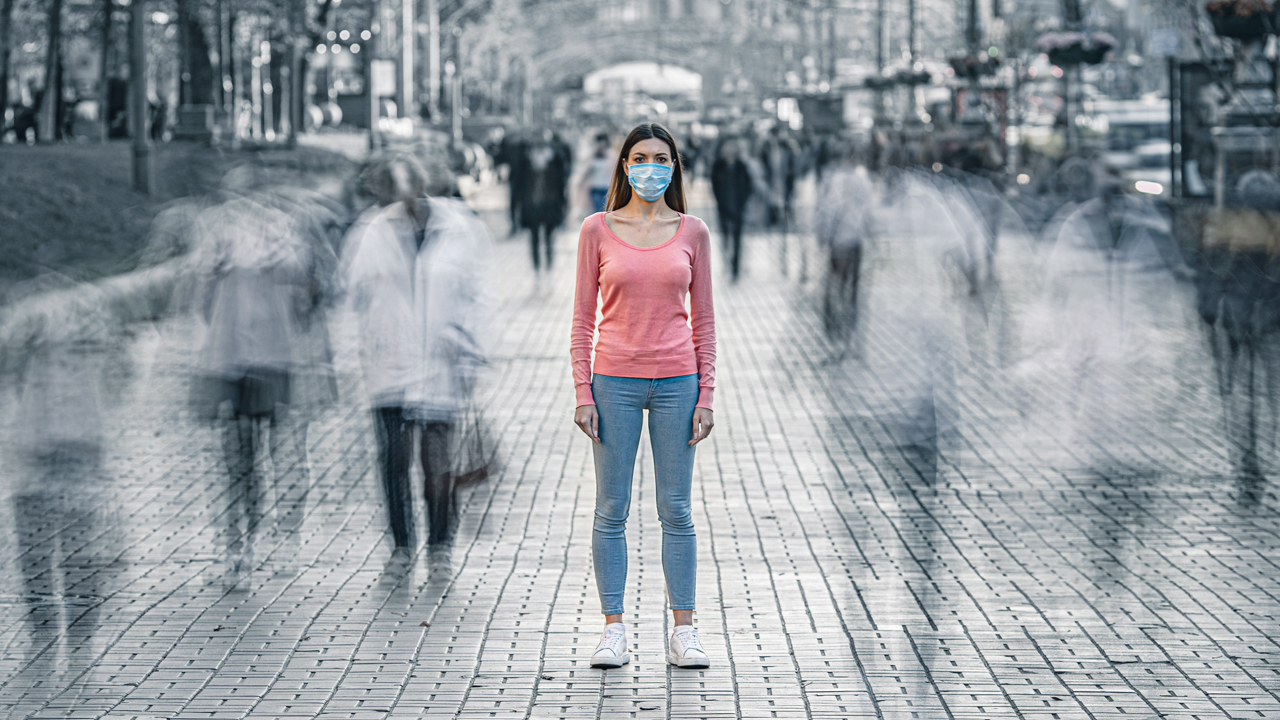In Clinical
Follow this topic
Bookmark
Record learning outcomes
“The risk of Covid-19 may be falling for most of us,” says Dr Lennard Lee, academic clinical lecturer and medical oncology consultant, University of Oxford, “but we are not there yet for people who are immunosuppressed.”
Although it has slipped down the public agenda, Covid still causes a lot of hospitalisations, especially among certain groups, says Dr Lee. “Some immunosuppressed people may not have responded well to the vaccine. Many are extremely vulnerable.”
About 500,000 people in the UK are immunosuppressed because of, for example, leukaemia or lymphoma, chemotherapy or radiotherapy, or an organ or bone marrow transplant. About half of those with severe immunosuppression live with haematological malignancies and, Government statistics suggest, are about 12 times more likely than the general population to die from Covid-19.
Dr Lee is calling for further studies to better characterise the nuances of risk from Covid among severely immunosuppressed patients and the implications for their lifestyles.
“Severely immunosuppressed people at particularly high risk may still need to be careful with social distancing, wear a mask and so on when community rates are high. Other people may be able to return to normal,” Dr Lee comments. “Currently, however, some people who need to take precautions are not and some people are living restricted lives who don’t need to.”
Mutant variants
Natural immunity, bolstered by vaccines, clears SARS-CoV-2, but the longer SARS-CoV-2 remains in the patient, the higher the risk that the coronavirus will mutate and escape the immune system. If the mutant passes more effectively between people than the circulating variants, we could face yet another wave.
“Some researchers speculate that severely immunosuppressed people can act as reservoirs of mutated SARS-CoV-2,” Dr Lee says. “If you are healthy and recover from Covid-19 after a few days, then SARS-CoV-2 has little time to mutate. But some severely immunosuppressed people take weeks or months to clear the infection, so SARS-CoV-2 has much longer to mutate.
“In some ways, we were lucky with omicron, which spread readily but generally caused mild disease – but there is no guarantee that the next variant will cause mild disease.”
Transatlantic concerns
One Covid-19 treatment that has raised hopes among the immunocompromised is Evusheld, which contains two long-acting monoclonal antibodies (tixagevimab plus cilgavimab) for the pre-exposure prophylaxis of Covid-19. Regulatory bodies see it differently and are not convinced by its effectiveness.
In January, the Food and Drug Administration in the US withdrew authorisation for Evusheld until further notice. The FDA noted that Evusheld does not neutralise certain variants closely related to the omicron subvariant XBB.1.5, which accounts for an estimated 28 per cent of the variants circulating in the US. “This means that Evusheld may not provide protection against developing Covid-19 for individuals who have received Evusheld and are later exposed to XBB.1.5,” the FDA commented. “However, we are awaiting additional data.”
Quite what will happen in the UK is unclear. According to the UK Health Security Agency, virologists isolated the first case of XBB.1.5 in this country on 21 November 2022. The number of isolates rose to 136 by 5 January 2023.
“It is plausible that XBB.1.5 will cause an increase in incidence after the current wave; however, it is too early to confirm this trajectory,” the agency’s technical briefing comments – unless of course another variant emerges.
NICE guidance
In March 2022 the MHRA authorised Evusheld but on 12 August 2022, the UK Government announced that it would not procure Evusheld “based on the evidence available and after careful analysis and consideration”.
NICE is currently assessing Evusheld’s clinical and cost-effectiveness, with final guidance expected in April 2023. In the meantime, NICE draft guidance has concluded that Evusheld is not recommended for vulnerable adults to protect against Covid-19 “because there is not enough evidence of its effectiveness against current variants and those likely to be circulating in the next six months”.
Helen Knight, director of medicines evaluation at NICE, acknowledged that the decision would be “disappointing for the many thousands of people who do not get the same protection from vaccination against Covid-19 as most people, and who therefore continue to significantly modify their behaviour to avoid infection”.
There needs to be much more transparency about the process and the reasons, says Dr Lee. “We also need to use data to know how to use vaccine-alternative drugs more effectively. For example, understanding which patients are at highest risk will reduce the number of patients who need drugs in addition to or instead of vaccination.”
Whatever the final decision about Evusheld and other long-acting antibodies, people who are severely immunosuppressed and their clinicians want to be heard, have clarity about their options and to understand the rationale behind the decisions.
“NICE has taken months to evaluate Evusheld. In the meantime, severely immunosuppressed people are being hospitalised from Covid-19,” says Dr Lee. “There should be an effective conveyor belt so that new and better drugs will be made available quickly. We need clarity as soon as possible, so that they are supported and no longer feel forgotten.”
• As PM was going to press NICE announced that it is developing a new review process to update its recommendations on the clinical and cost-effectiveness of Covid-19 treatments so they can be made available more quickly to patients if they show promise against new variants and are found to be cost-effective.

